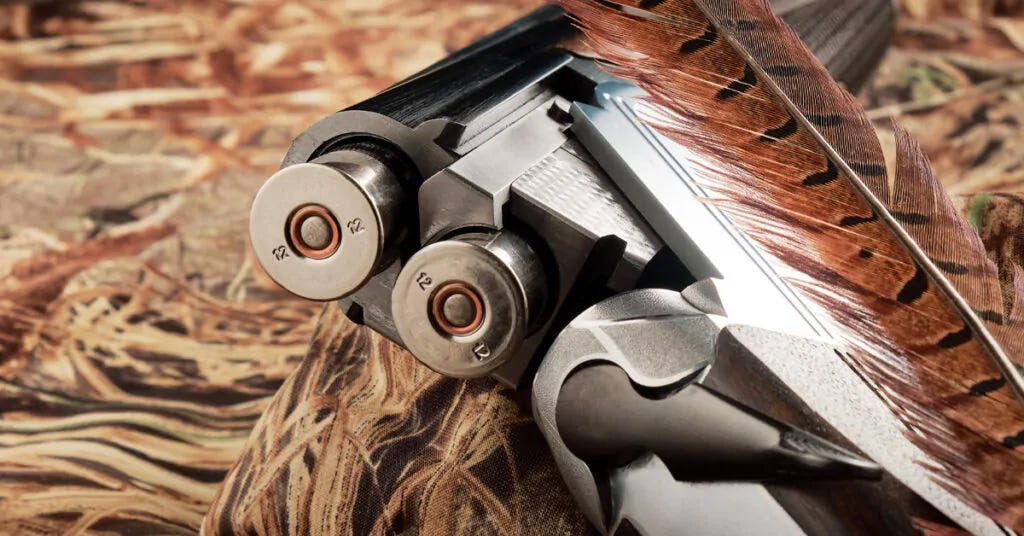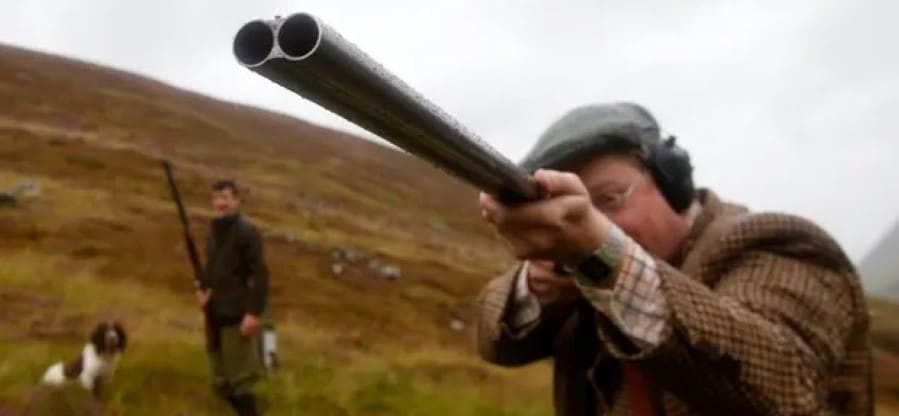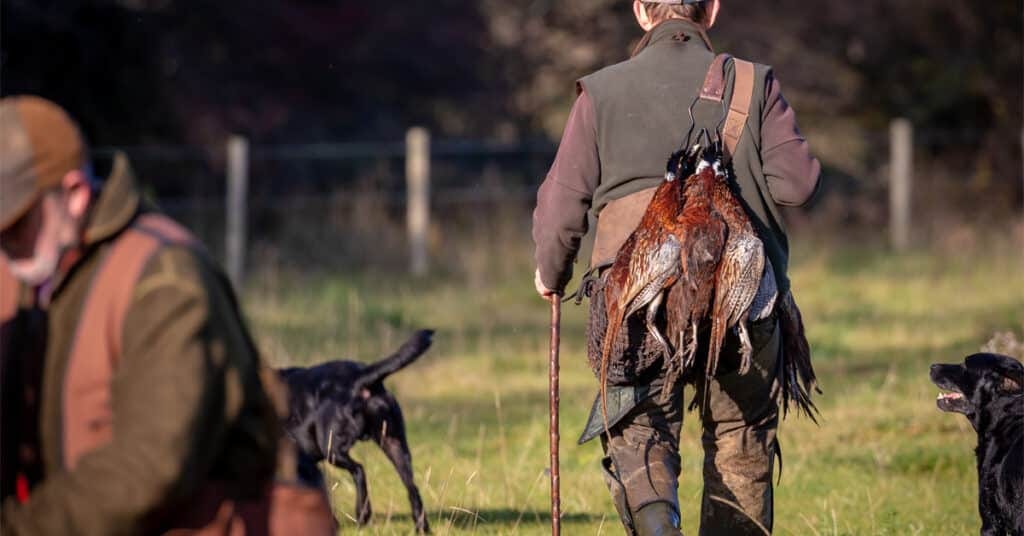Have Your Say: Government Firearms Licencing Consultation
The Home Office is seeking views on recommendations for changes to the legislation on firearms licensing.
The Home Office is seeking views on recommendations for changes to the legislation on firearms licensing, possible changes to the system of referees, and changes in other areas of firearm licensing.
The online consultation, which consists of 20 ‘Yes/No’ questions and a ‘personal details’ section takes just a few minutes to complete. It is “open to the public and organisation and bodies with an interest in firearms licensing in England, Wales and Scotland” and runs until August 23rd this year.
Background
We are frequently told that the UK has some of the strictest firearms licencing conditions in the world (see our Protectors page > Firearms and the Law).
Anyone wishing to own a firearm (in general terms a rifle, pistol or any other kind of smaller, handheld gun) in the UK must obtain a license from the police. The police conduct several checks to ensure the applicant has good reason to own a gun, is fit to own a gun, and can safely own the gun. Firearms license holders are required to follow license conditions specified by the police, which include conditions relating to the safekeeping of their guns.
It’s certainly true that we are (thankfully) a long, long way from the madness of the USA’s ‘Second Amendment‘ and being able to walk into a store and buy a semi-automatic weapon within minutes, but there have always been concerns about guns ending up in the hands of people who patently shouldn’t have them and about the rigour of licencing checks.
There are numerous cases where clearly unfit people have had access to firearms with devastating consequences. This government consultation has been set up after the inquests into two of them: what has become known as the ‘Plymouth Shootings’ in August 2021 and the shooting of John McKinnon on the Isle of Skye in August 2022.
A particularly notorious incident, the Plymouth killing of five people (and wounding of two others) in just eight minutes by Jake Davison, a 22-year-old steroid abuser apparently obsessed with the incel (involuntary celibacy) subculture and mass killings, made headline news in 2021. The grief of friends and relatives of the victims turned to rage when it was later found that Devon and Cornwall Police had given Jake Davison his shotgun certificate back just weeks before he destroyed the lives of so many people: “It is beyond us how Davison, a man with a known history of violence, mental health issues, and with no real need to own a firearm, was granted a licence to possess a gun in the first place,” the family said in a statement released by their lawyers.
The second incident referenced by the consultation concerns the shooting dead of Finlay MacDonald by his brother-in-law John MacKinnon, at his home on Skye on 10 August 2022. He was separately charged with the attempted murder of his wife Rowena McDonald and two other people on the same day. He also faces an accusation of possessing a shotgun with intent to “endanger life”. Sentencing is still being considered and a final hearing will be heard in December this year.
What does the consultation want to know?
Incidents like these are very rare in the UK. Offences involving firearms make up a small proportion of all recorded crime in England and Wales, but one incident is of course one too many. For the people who lost loved ones or survived shootings like these the pain may never go away.
The consultation is not (despite what some ‘countryside’ groups are pathetically trying to suggest) about banning or restricting firearms (the government itself says that “additional controls on shotguns are unnecessary and would have a negative impact on their legitimate use”), and whether Protect the Wild likes the fact that 539,212 people held a firearm and or a shotgun certificate for a total of 1,367,579 shotguns in March 2022 is not the point.
This is all about reviewing the system that authorises people to obtain certificates for guns and associated ammunition.
Currently, the situation is this:
Applicants for certificates should be able to demonstrate that they ‘use’ their firearm on a regular, legitimate basis for work, sport or leisure (including collections or research). In legal terms, the applicant must show they have ‘good reason’ for having a firearm.
Chief officers are able to exercise discretion over what constitutes a ‘good reason’, judging each case on its own merits.
Chief officers should exercise caution in dealing with cases where the applicant presents a nominal reason for possessing firearms without supporting evidence.
The police will be expected to make reasonable inquiries to verify the applicant’s “good reason” for the possession of firearms.
They must be satisfied that public safety or peace will not be endangered.
A certificate usually lasts 5 years from the date it was issued or renewed.
The questions the consultation is asking are whether should it be made more difficult for men like Davison and MacKinnon to legally hold shotgun certificates, should checks on certificate holders be made more frequent, and should the system of referees who vouch for people wanting to own a shotgun certificate be made more robust?
Questions and answers
Protect the Wild doesn’t want to ‘advise’ or proscribe how the consultation should be answered.
However:
It probably goes without saying that we do think – for everyone’s safety – that checks should be made more robust.
We do not agree (as is being pushed for by the likes of the Countryside Alliance) that once issued a certificate should last for TEN years. People, their circumstances, and their mental health can change enormously in a decade. Five years seems extraordinarily generous already, and is probably more based around a lack of resources and staff to make checks before re-issue than any assessment of it being a suitable period.
We do agree that interim medical checks should be made on licensed firearms holders between the grant of the certificate and any application to renew, though making it mandatory for already hard-pressed and overworked GPs to be involved in that process seems unfair unless checks are paid for the applicants themselves.
After the 20 main questions there is a field asking for any comments on the subject matter of the consultation. Again that is a matter of personal opinion, but for example, Protect the Wild’s Charlie Moores said the following: “Being granted a firearms licence should be a privilege, not a right. Far more stringent checks should be made before granting a firearms licence and police officers should be far more able to remove licences if offences are committed. Licences should not be subsidised by the taxpayer but fully paid for by the applicant.”
There is a follow-up (Q23) in a personal details section which asks for a “Job title or capacity in which you are responding to this consultation exercise”. It is absolutely legitimate to answer ‘a member of the public’ (as the question itself suggests).
Firearms certificate subsidy
The point above about subsidies- which is not actually part of the consultation itself – comes from the fact that taxpayers (through the council tax) subsidise the true cost of firearms licences.
Funding for police forces in England and Wales comes from us, the taxpayer, and forces have complained for years about underfunding. Yet one of the police’s duties is to administer firearms licences. Making an assessment that an individual should be allowed to own and use a firearm under the Firearms Act costs the police time and resources – far more than the cost of the licence itself!
Shooting lobbyists BASC have tried to disingenuously invert arguments about subsidy by stating that “Firearms licensing is a service to the wider public to ensure public safety. This is not subsidising certificate holders, rather it is the public investing in a process which contributes to their wider protection from harm.” A ridiculous argument that suggests that it is the potential victim that should pay for a potential offender to own a firearm.
The fact is that anyone wanting a firearm certificate should pay for it themselves, not demand that the public cover the costs.
Privacy concerns
The consultation does ask for personal details (though not contact details). Given that the PSNI today admitted it inadvertently leaked all the details of its police officers online and the Home Office was chastised last year after sensitive documents were left at a London venue, all of us might be wary about giving out details of ourselves.
It is perhaps flippant to say that the Home Office will already know everything about us anyway, but in cases like this we probably do have to accept that “information provided in response to this consultation, including personal information, may be published or disclosed in accordance with the access to information regimes (these are primarily the Freedom of Information Act 2000 (FOIA), the Data Protection Act 2018 (DPA) and the Environmental Information Regulations 2004)”.
Whether that dissuades anyone from filling in the consultation is again a matter of personal choice.
Pro-shooting lobbyists are asking their members to answer this consultation. If you would like to also complete it (and remember it closes on August 23rd) please go to: https://www.homeofficesurveys.homeoffice.gov.uk/s/firearms-licensing/






